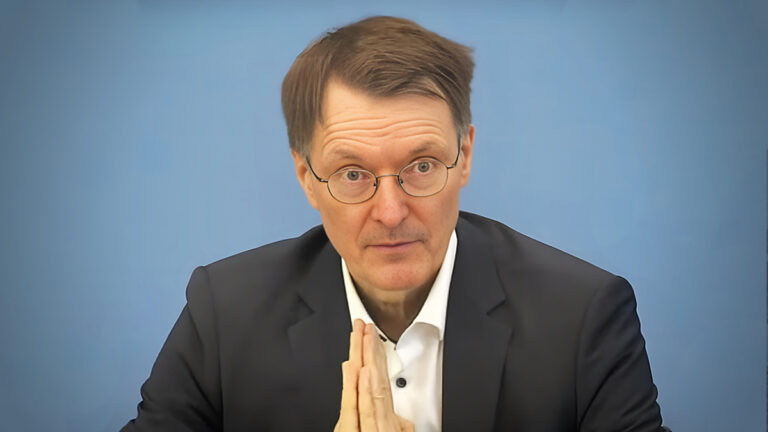Top Fauci Adviser Subpoenaed Amid New Whistleblower Allegations of COVID Origins Cover-Up
Dr. David Morens, former senior adviser to Dr. Anthony Fauci, was subpoenaed Tuesday by a U.S. House of Representatives subcommittee after new evidence suggests he skirted federal record-keeping laws in communications with key officials, including Fauci, about the origins of SARS-CoV-2.
A House subcommittee on Tuesday subpoenaed a former senior adviser to Dr. Anthony Fauci for conversations about COVID-19 origins exchanged over his private email account in violation of federal record-keeping laws.
The U.S. House Select Subcommittee on the Coronavirus Pandemic demanded Dr. David Morensturn to produce “all documents and communications” regarding the Wuhan lab and EcoHealth Alliance or the origins of COVID-19, between Nov. 1, 2019 and the present between Morens and 36 others, including EcoHealth President Peter Daszak, Fauci and former National Institutes of Health (NIH) Director Francis Collins, former Centers for Disease Control and Prevention Director Robert Redfield, World Health Organization (WHO) Chief Scientist Jeremy Farrar, Kristian Andersen, Ph.D.,and Dr. W. Ian Lipkin (co-authors of the “Proximal Origin” paper), Wuhan lab senior scientist Shi Zhengli, Ph.D., and Peter Hotez, M.D., Ph.D.
Morens has until April 30 to produce the documents, according to the subpoena.
The subpoena followed email confirmation of whistleblower allegations that Morens purposefully evaded federal transparency laws like the Freedom of Information Act (FOIA) in concealing email conversations about the pandemic’s origins.
Subcommittee Chairman Brad Wenstrup (R-Ohio), in a statement on the subpoena and potential federal records violation, said:
“Dr. David Morens purposefully evaded FOIA laws to give his ‘best-friend’ EcoHealth Alliance President Dr. Peter Daszak non-public, internal information that had the potential to undermine the operations of the United States government. This is not only highly concerning, but it is also likely illegal.
“Dr. Morens must be held accountable for any abuse of power and his blatant disregard for the law.”
The chairman also noted that this “pattern of abusing federal power appears to stretch beyond Dr. Morens, Dr. Daszak, or NIH,” and called the subpoena “an important effort to ensure that federal health officials never again feel empowered to duck accountability to the American people and willfully undermine our elected government.”
‘I will delete anything I don’t want to see in the New York Times’
Morens, who will testify before the subcommittee at a public hearing later this year, has been at the center of controversy since June 2023 for using his private email to communicate with Daszak.
In those emails, Morens wrote, “I always try to communicate over gmail because my NIH email is FOIA’d constantly” and “I will delete anything I don’t want to see in the New York Times.”
EcoHealth Alliance, a nonprofit organization, has been accused of using U.S. taxpayer dollars to fund gain-of-function research at the Wuhan Institute of Virology in China.
New evidence provided by the whistleblower alleges Morens engaged in further attempts to subvert transparency laws by sending emails from his personal Gmail account not only to Daszak but to Dr. Gerald Keusch, associate director of the National Emerging Infectious Disease Laboratories at Boston University, discussing matters related to COVID-19 origins, according to an April 11 subcommittee press release.
In one of the emails sent to Daszak and Keusch on July 12, 2020, Morens inquired about the International Society for Infectious Diseases (ISID), which authored an email with a subject line that read, “COVID-19 update (312): China, SARS-CoV2 origin, animal reservoir, WHO mission.”
ISID’s email raised concerns about a possible cover-up of the virus’s origins, mentioning Daszak, EcoHealth Alliance’s suspended grant and Wuhan lab researcher Shi, asking, “Is it possible that somebody at WIV [Wuhan Institute of Virology] became infected with the virus and then passed it on to others outside the lab?”
Daszak represented the U.S. in the WHO’s investigation into the origins of the virus in China.
In the letter to Morens accompanying the subpoena, Wenstrup expressed concern about the adequacy of Morens’ efforts to comply with the subcommittee’s document requests. The letter states that it appears Morens personally conducted the search of his own email inbox and failed to produce documents that the subcommittee knows are in his custody, including some explicitly mentioned in the June 29, 2023, letter.
The letter also reveals that subcommittee staff and Morens’ counsel had attempted to reach an accommodation regarding a more robust search and production of documents, but after Morens’ transcribed interview, he “abruptly ceased attempting to reach an agreement with the Select Subcommittee.”
Wenstrup also sent a letter to Keusch on April 11 requesting he produce any documents and communication related to correspondence with Morens, Daszak, the Wuhan lab and other individuals and entities with knowledge of and access to COVID-19 origins material.
EcoHealth preemptively releases emails
EcoHealth Alliance released four tranches of email communications on April 12, claiming the emails demonstrate it was “appropriately communicating” about its NIH grant “that had been terminated unexpectedly and arbitrarily.”
However, the emails appear to confirm the whistleblower’s allegations against Morens, showing he provided non-public information to Daszak and offered insight into internal conversations at the National Institute of Allergy and Infectious Diseases (NIAID), according to the subcommittee press release.
In one email, Morens appears to have disclosed Fauci’s efforts and provided Daszak with information about internal deliberations related to the suspension of the EcoHealth Alliance grant, writing, “Tony is now fully aware I think and is I am told involved in some sort of damage control.”
The emails also reveal Daszak agreeing to communicate with Morens via his personal Gmail account instead of his government email to discuss information related to COVID-19 and NIAID grants. Daszak wrote, “David — We’ll communicate with you via gmail from now on,” and added, “We have 15,000 samples in freezers in Wuhan.”
An EcoHealth Alliance spokesperson told the New York Post the emails show that “Dr. Daszak had been seeking advice on how to deal with this unprecedented situation from Dr. Morens.”
In one of the released emails dated April 26, 2020, Daszak told Morens about the potential loss of funding and its impact on research, stating:
“Right now, without this funding, US employees will become unemployed. Of course, that pales into insignificance against the potential loss of life if we consider the health benefits of 1) better prediction of future pandemics; 2) better vaccines & therapeutics that work against these viruses; & 3) continued access to 15 yrs of sample collection, data, and collaborative knowledge from our work with our Chinese colleagues.”
The NY Post noted that the NIH suspended the EcoHealth Alliance grant in 2020, a move deputy director Lawrence A. Tabak acknowledged in an October 2021 letter to Congress stating that EcoHealth had “failed to report” having created novel coronaviruses capable of binding to the ACE2 receptor in humanized mice.
in August 2022 NIH terminated EcoHealth’s grant, informing the organization that it had not complied with the terms and conditions attached to the funding while allowing for a potential renegotiation of the award in the future.
The organization also noted that “NIH did reinstate the grant in May 2023, with EcoHealth Alliance proposing a renegotiated work plan that removed any on-the-ground activities in China.”
Morens under investigation since June 2023
Morens has been under investigation since June 2023, when the subcommittee released emails suggesting he concealed COVID-19-related information.
Following these revelations, the NIH removed Morens from his position and placed him on administrative leave.
In October 2023, Wenstrup announced a subpoena for NIH records related to Morens’ potential federal records violation, as the NIH had conducted an internal investigation but refused to share relevant findings with Congress or the American people.
In November 2023, the subcommittee conducted a transcribed interview with Daszak, who described Morens as his “mentor.”
In January 2024, Morens appeared for a transcribed interview with the subcommittee, during which he described Daszak as a close friend and denied deleting any COVID-19 origins records or forwarding any federal records to his Gmail account to avoid FOIA requests.
In Wenstrup’s letter to Morens on Monday, he noted that at Morens’ voluntary appearance before the subcommittee on Dec. 29, 2023, for a transcribed interview, his “fulsome testimony was blocked by the U.S. Department of Health and Human Services.”
Suggest a correction







